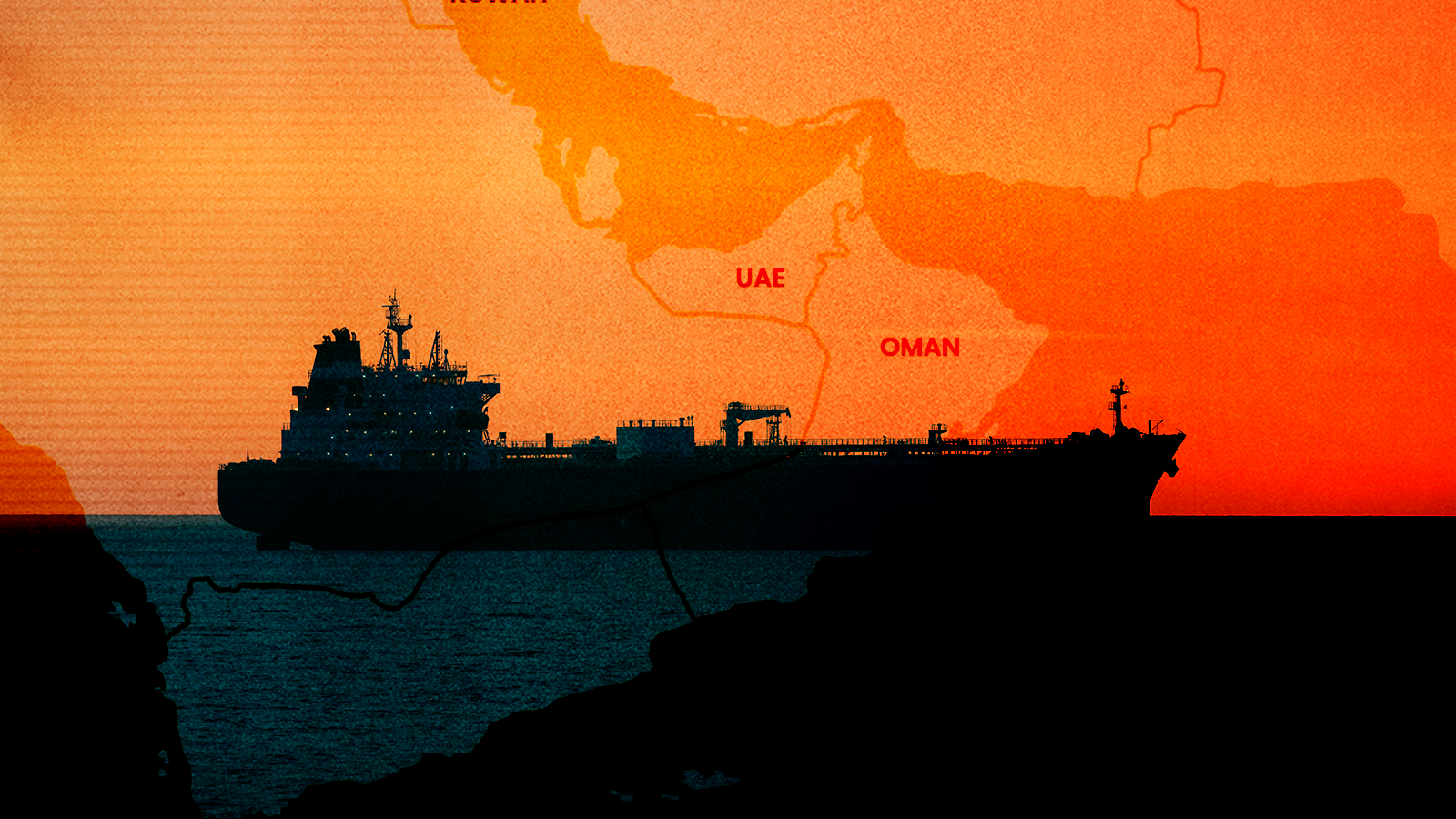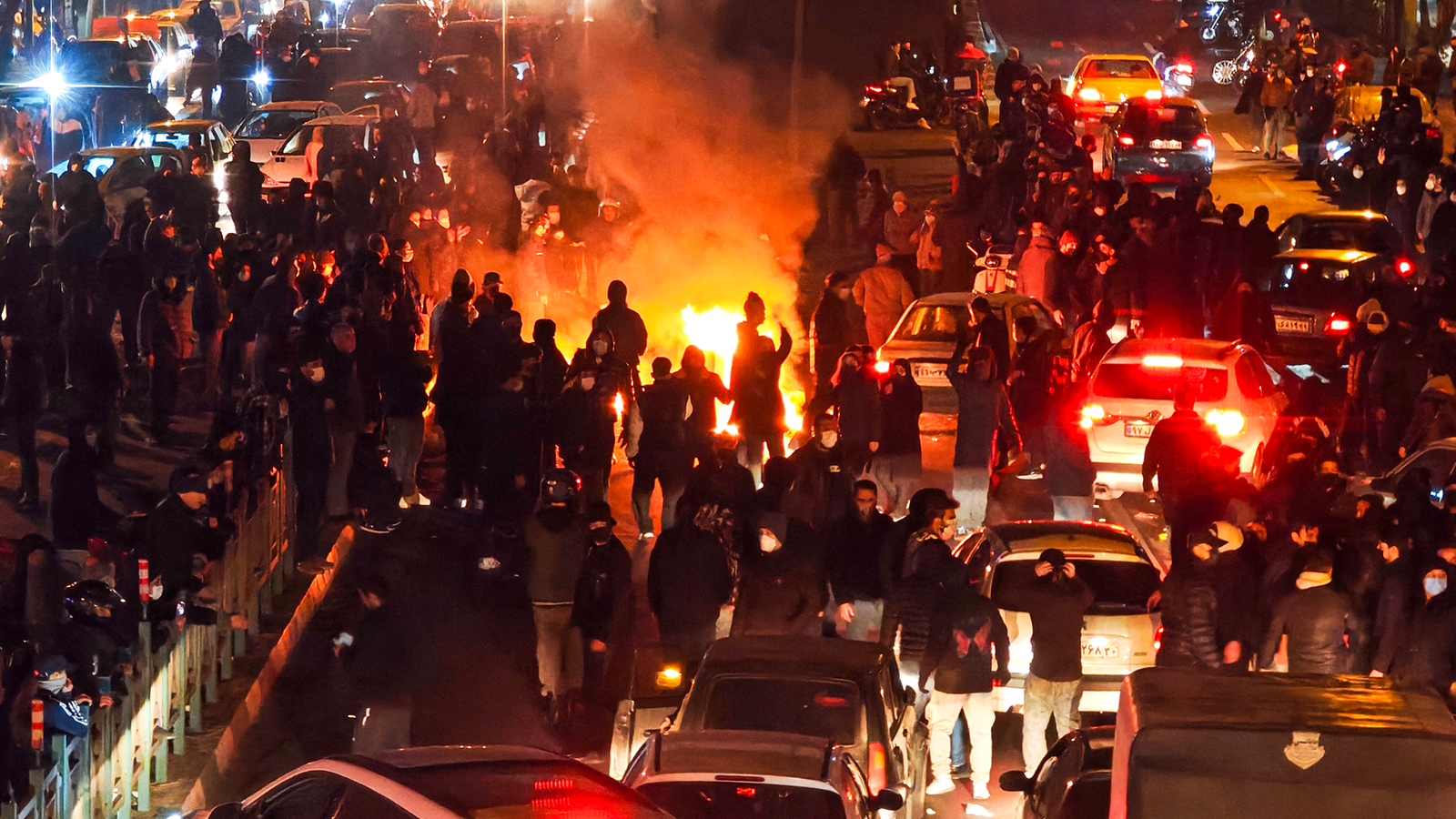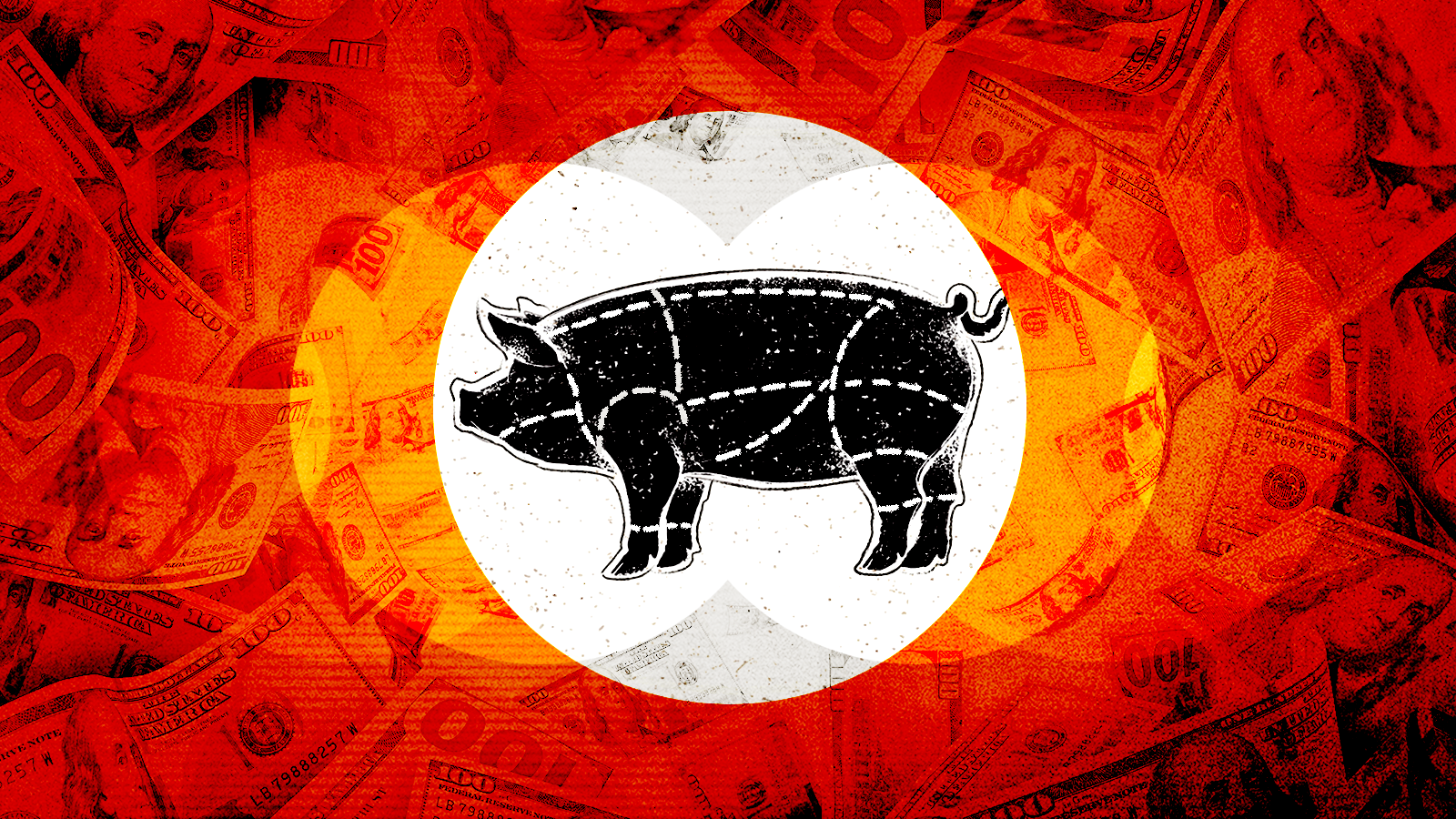The Treasury Department sanctioned three leaders of Cartel de Jalisco Nueva Generacion (CJNG) in May for drug trafficking and operating a fuel theft network between Texas border regions and Tamaulipas, Mexico.
Two hazardous-materials transportation companies in the CJNG leaders’ network, Grupo Jala Logistica S.A. de C.V. and SLA. Servicios Logisticos Ambientales S.A. de C.V., were sanctioned in the same action for smuggling stolen crude oil between Mexico and the United States, an operation commonly referred to in Mexico as huachicol.
As the U.S. intensifies its focus on huachicol schemes, a Kharon investigation into the two sanctioned companies uncovered parallel networks of logistics firms that share leadership and similar names both in cartel-heavy Tamaulipas and in cities across the southwest border. One shared Texas address connected more dots.
Why it matters: Treasury rolled out its designations against the CJNG leaders and their companies in tandem with a Financial Crimes Enforcement Network (FinCEN) alert about oil-smuggling schemes. FinCEN warned that fuel theft in Mexico “has become the most significant non-drug illicit revenue source for the Cartels and enables them to sustain their global criminal enterprises and drug trafficking operations into the United States.”
Cartels, it said, are “using complicit Mexican brokers in the oil and natural gas industry” to smuggle and sell crude oil stolen from the state-owned energy company Petróleos Mexicanos to “complicit, small U.S.-based oil and natural gas companies” near the border. These companies may otherwise appear legitimate.
But the CJNG-connected networks reflect a few red flags for risk that FinCEN mentioned in its alert, including their geographic presences as well as their sparse presences online.
Network 1: Mexican national Jose Luis Hernandez Juarez is the majority owner of the sanctioned SLA. Servicios Logísticos Ambientales. Hernandez Juarez also owns five companies in Mexico and the United States, three of which are transportation companies; neither Hernandez Juarez nor any of his other companies have been targeted by sanctions.
But a few on opposite sides of the border share clear identifiers. First:
The Hernandez Juarez-Chow Meza partnership yields two more lookalike cross-border companies:
Two hazardous-materials transportation companies in the CJNG leaders’ network, Grupo Jala Logistica S.A. de C.V. and SLA. Servicios Logisticos Ambientales S.A. de C.V., were sanctioned in the same action for smuggling stolen crude oil between Mexico and the United States, an operation commonly referred to in Mexico as huachicol.
As the U.S. intensifies its focus on huachicol schemes, a Kharon investigation into the two sanctioned companies uncovered parallel networks of logistics firms that share leadership and similar names both in cartel-heavy Tamaulipas and in cities across the southwest border. One shared Texas address connected more dots.
Why it matters: Treasury rolled out its designations against the CJNG leaders and their companies in tandem with a Financial Crimes Enforcement Network (FinCEN) alert about oil-smuggling schemes. FinCEN warned that fuel theft in Mexico “has become the most significant non-drug illicit revenue source for the Cartels and enables them to sustain their global criminal enterprises and drug trafficking operations into the United States.”
Cartels, it said, are “using complicit Mexican brokers in the oil and natural gas industry” to smuggle and sell crude oil stolen from the state-owned energy company Petróleos Mexicanos to “complicit, small U.S.-based oil and natural gas companies” near the border. These companies may otherwise appear legitimate.
But the CJNG-connected networks reflect a few red flags for risk that FinCEN mentioned in its alert, including their geographic presences as well as their sparse presences online.
Network 1: Mexican national Jose Luis Hernandez Juarez is the majority owner of the sanctioned SLA. Servicios Logísticos Ambientales. Hernandez Juarez also owns five companies in Mexico and the United States, three of which are transportation companies; neither Hernandez Juarez nor any of his other companies have been targeted by sanctions.
But a few on opposite sides of the border share clear identifiers. First:
- Hernandez Juarez is a 70% owner of T-Mar Logistics, S.A. de C.V., also known as Transportes Mar, a Tamaulipas-based business that, according to corporate records, deals in the transport of crude oil, gasoline and hazardous waste. T-Mar Logistics has an active social media presence, with Facebook posts advertising its services as well as its courses for truck drivers.
- At the same time, Hernandez Juarez manages T-Mar Freight International LLC, registered in the border city of Hidalgo, Texas, at an address just off State Highway 336. In contrast with T-Mar Logistics, T-Mar Freight has no online presence.
The Hernandez Juarez-Chow Meza partnership yields two more lookalike cross-border companies:
- Chow Meza and his grandson are among the owners of the Mexican company Transborder Logistic, S.A. de C.V.
- Meanwhile, one more company located at the Hidalgo address is Transborder Logistics, Inc., a transportation company that Hernandez Juarez and Chow Meza manage. This Texas company also lacks an online presence.
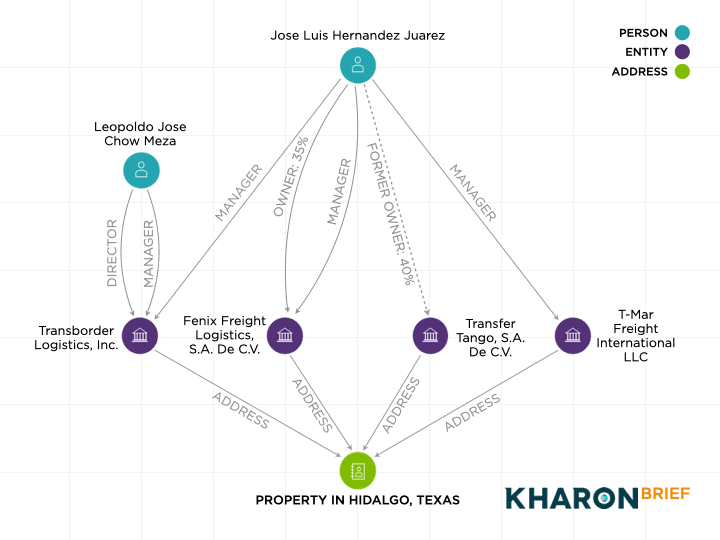
Kharon users can explore this Insight in greater detail through the ClearView platform.
Network 2: The cross-border pattern repeats in the network of Grupo Jala Logistica, the other CJNG-tied company that Treasury sanctioned in May.
Its majority owner, Jose Alejandro Llanas Alba, is also a minority owner of Cor Box S.A. de C.V., a corrugated cardboard manufacturing company based in Tamaulipas. Cor Box’s majority owner, in turn, runs two Texas-based entities, including the similarly named Corbox LLC. Both Texas companies have sold to Cor Box.
Its majority owner, Jose Alejandro Llanas Alba, is also a minority owner of Cor Box S.A. de C.V., a corrugated cardboard manufacturing company based in Tamaulipas. Cor Box’s majority owner, in turn, runs two Texas-based entities, including the similarly named Corbox LLC. Both Texas companies have sold to Cor Box.
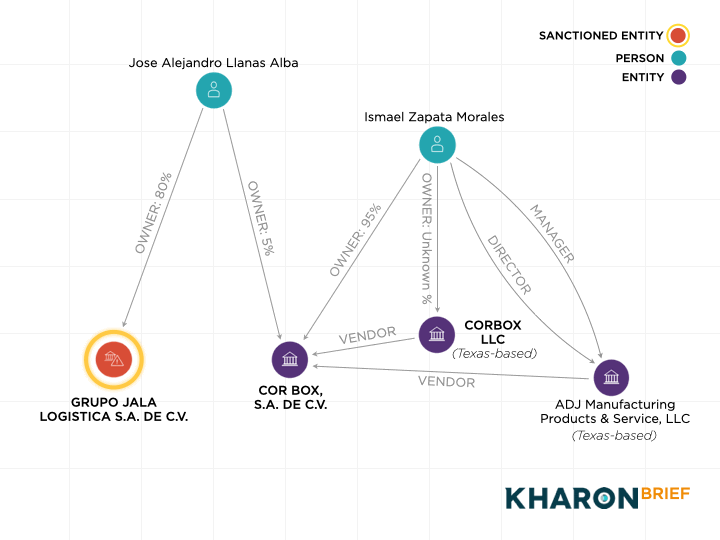
But the network’s U.S. addresses may obscure its cartel ties and resulting exposure risks more broadly: Trade data shows that another Cor Box supplier in 2020 was a large, unrelated American producer of corrugated boxes.
Insights break down a Kharon investigation and why it matters, in 3 minutes or less.
Read more from the Kharon Brief:
Insights break down a Kharon investigation and why it matters, in 3 minutes or less.
Read more from the Kharon Brief:




